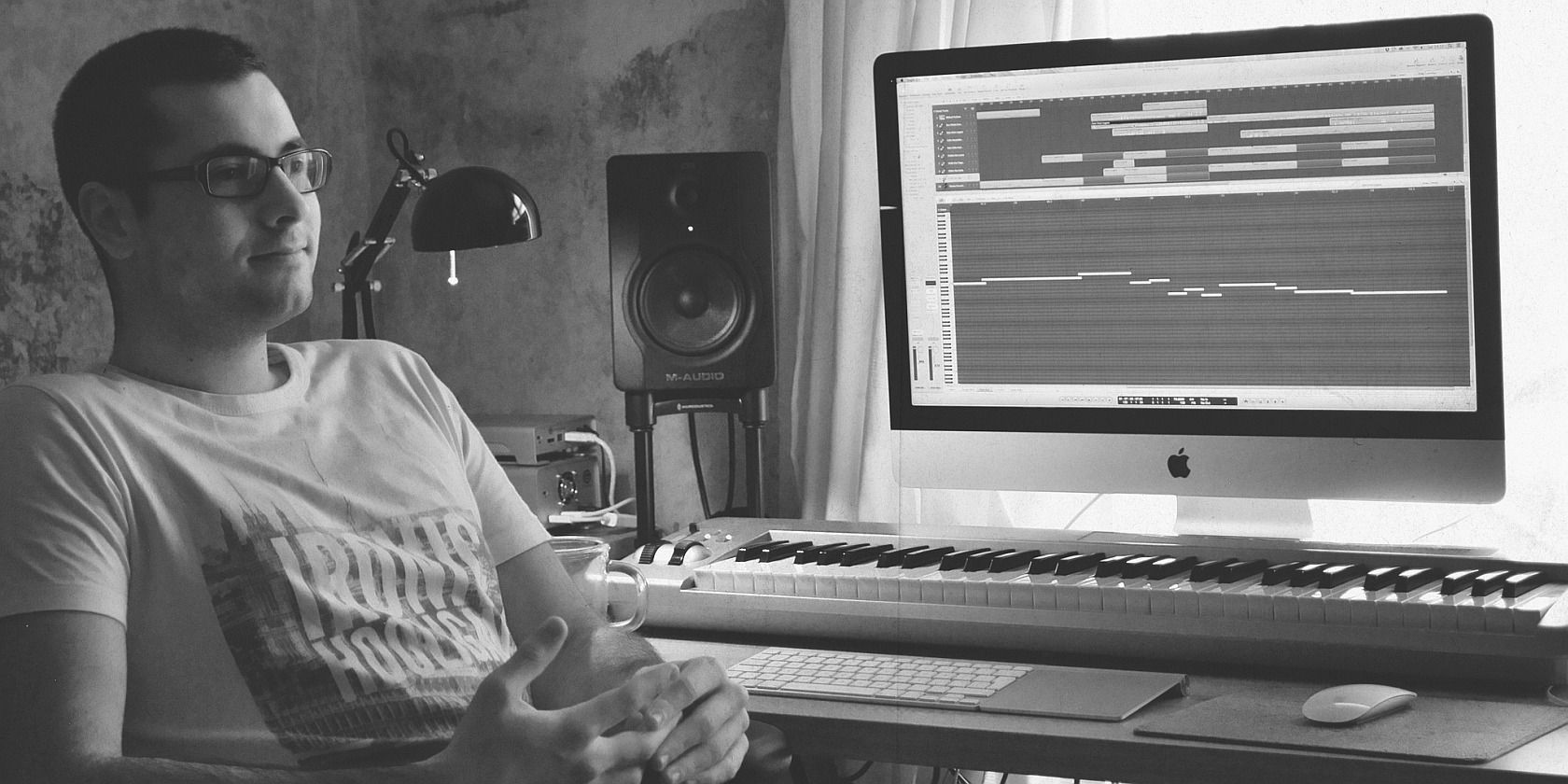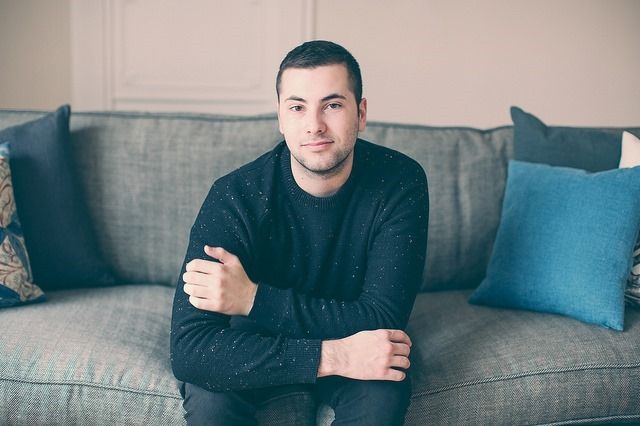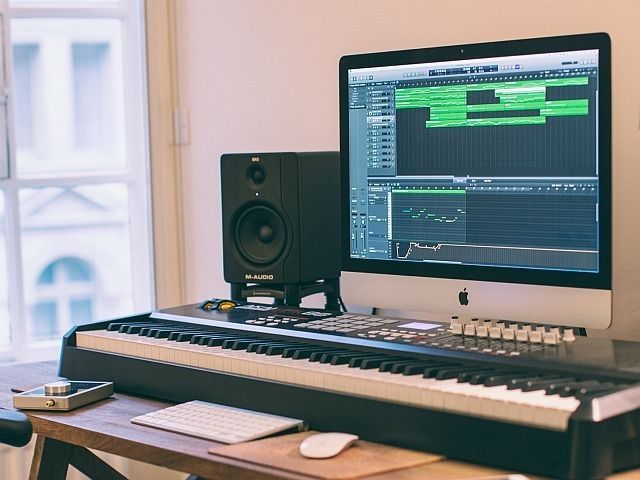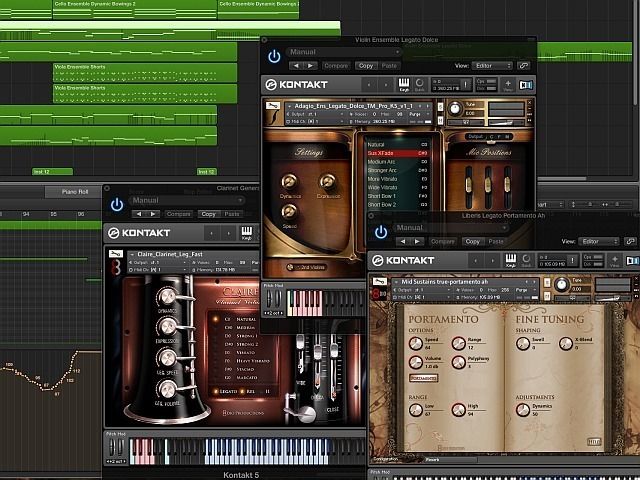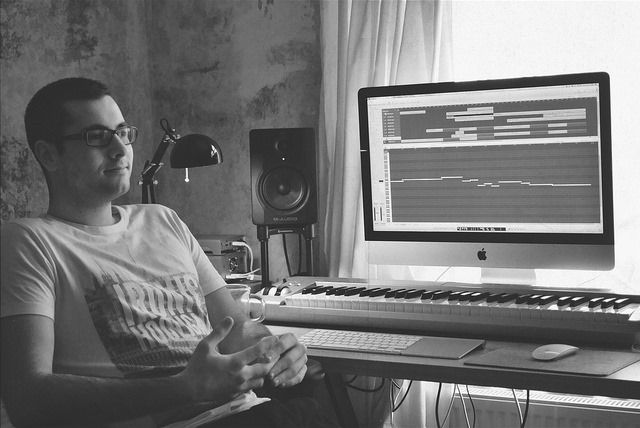Here's a video of a fireman saving a kitten from a burning house. And yes, it has everything to do with this post. Watch it first, then I'll explain:
http://www.youtube.com/watch?v=CjB_oVeq8Lo
That was pretty moving, wasn't it? If you felt a surge of emotion, that's in no small part thanks to the video's soundtrack -- the music just fits it like a glove. That music was created by composer Dexter Britain, and if you liked it, you can just go ahead and download the album and other albums of his, without paying a dime. And no, no BitTorrent is required -- Dexter is just giving it all away for free. How can that be? That's just what I've set out to understand, interviewing Dexter.
Who are you, and what do you do?
My name is Dexter Britain and I am a composer of mostly contemporary classical, soundtrack music. Since August 2012, I have been professionally releasing my music for use by filmmakers, amateurs, and professionals alike. My first commission was for graduates on behalf of McLaren and since then my music has been used by countless companies, charities, and filmmakers including G-Tech, GoPro, BVLGARI, Kellogg's, and Nike.
How did you get into creating music online? Are you classically trained?
I have always been musical and have played piano since I was strong enough to press the keys. I wanted piano lessons when I was four, but the teacher refused as my hands were too small. Since then I have been self-taught; playing the piano everyday and building by ability and my musical ear. At 16 my parents bought me an iMac which lead to me falling in love with the ability to capture my ideas with Garageband (Download the MakeUseOf Garageband guide -ed). Before I had been only playing by ear along to CDs, but now I had the ability to create my own tracks.
I wanted piano lessons when I was four, but the teacher refused as my hands were too small.
I made a lot of music back then, almost one a day for a year. Some are out there now as part of my Creative Commons albums, but most are confined to the archives. It was more about learning how to create a track, rather than compose the next big thing. Learning how the technology worked and how it could become my tool.
Despite needing a job (and finding one in retail) I continued to make music as much as I could. It wasn't until I quit working the 9-5 and focused on music entirely that it became my career (albeit after seven long years).
When I quit my job around 2009 it was to go to university (London College of Fashion, to study Fashion Photography -- I wanted to be a production designer in movies). I had to turn down my offer due to lack of means. It was then I decided to wholeheartedly focus on music. It had to work for me as I moved back home with my parents and didn’t want to spend too long in this situation. I didn’t start earning a penny from music until July 2012, some seven years after I began pursuing a possible career in music.
Reading music has appealed to me, as I am amazed by the skill of trained musicians who can see what to me is mostly nonsense and make music. When I was younger, I was afraid that learning music theory would take away from my natural music ear and my ability to improvise. Improvisation for me is composing, just one bit after another, different tracks, different instruments, and sounds. Its all improvisation to me.
What sort of hardware do you use?
I like a simple setup, given the way I compose I don't need a lot of hardware, mixing boards and outboard gear.
I use a 27" iMac with M-Audio BX5 monitors through an Apogee Duet. My keyboard these days in an AKAI MPK 88, although a lot of my work was produced with an M-Audio Keystation 61 and the built in speakers of the iMac.
My chair is especially important considering it's where I spend the vast majority of my life, is an Aeron chair by Herman Miller.
And what software?
Logic Pro 9 and now the Logic Pro X. It was a natural and easy progression from Garageband to Logic Pro. I think when one has a basic understanding of DAWs (Digital audio workstations - ed) then you can use almost any of them. Logic was just what I found most natural to use and fit my workflow. The problem with all DAWs is that the built-in instruments are never wonderful, so as I have become more successful in music, my sample library has grown.
My favorite and most used virtual instruments this year are the Adagio string series from 8Dio. They have a lot of dynamics that add to the realism. One of my most popular pieces, The Time To Run, was created with only the built-in instruments of Logic Express and the violin from Eastwest Gypsy. The point being, you don't need to break the bank to create appealing music.
I use a lot more sample libraries these days:
- Cinematic Strings
- 8Dio
- Adagio Violins, Violas, Cellos, Basses
- Post Apocalyptic Guitar
- Claire Clarinet
- Claire Flute
- 8Dioboe
- Requiem Pro
- Liberis
- 8Dio Dubstep
- 1928 Legacy Steinway
- Kontakt Komplete 8
- Eastwest
- Ministry Of Rock II
- Hollywood Strings, Brass, and Woodwind
- Silk
- The Dark Side
- Gypsy
- Motu MX4 (now obsolete as not 64bit compatible, yet previously one of my favorites)
Let's talk about the business side of things. When did you realize you could make a living like this? How do you go about it?
http://www.youtube.com/watch?v=7Sv_Bv1H7BQ
(Above: Another GoPro video with Dexter Britain's soundtrack - ed)
I struggled for a long time attempting to get my music with publishers, labels, and music supervisors. That being the typically thought-of route when trying to make it in the industry. After spending a long time getting nowhere I gave my music away for free with a Creative Commons license on Soundcloud. It was picked up by The Free Music Archive and NotCot.org. This was the first flood of interest in my music, and everything appeared to start rolling after that. Requests to use my music commercially began and I was looking to facilitate the licensing opportunities myself. This was somewhat successful, however as my client list grew I felt the need to find a licensing company who could take over the mounting paperwork. This is how I came across The Music Bed who have helped me earn a living through music and continue to make a name for myself amongst film makers.
This was the first flood of interest in my music, and everything appeared to start rolling after that.
The entire process of giving my music away and then earning from it, all happened very quickly. Literally a matter of weeks compared to the previous seven years of trying.
Did you ever catch people commercially using your music without permission? What did you do?
I know there are countless people using my music without a license, or beyond the domain of Creative Commons. It hasn't bothered me much as it has all been exposure (where credited). I think I have to consider the bigger picture when it comes to protecting my work and the unauthorized use/ sharing of it. If it weren't for such sharing it is possible I'd never be in the position of success I am now. Although sometimes I wonder about the lost income from illegitimate use, it is more the feeling of annoyance that people walk over my generosity. I am open to every enquiry, but I simply feel that if you are earning from the use of someone else's work then they should be reimbursed appropriately. That's not just for me, it's a problem with the whole creative community (and many others) as evident from The World's Largest Invoice [Broken URL Removed].
I think I have to consider the bigger picture when it comes to protecting my work
It's a difficult business to get up and running in, and then once there, it is seemingly more difficult to protect your work. I'm now working with AdRev to help combat illegal use of my work on YouTube. This is not something I wanted to do. To me, it is aggressive and can be an inconvenience to my actual clients and anyone who uses my music as allowed. However, it is one of those things that I must try and see if it works out.
Where do you see the music industry going? Is the future in live performance? Do you think more and more artists will use the same model you're using?
I have always had strong feelings about the current state of the music industry. In my opinion, it is outdated in its approach to capitalizing revenue. Selling albums has not been a major source of income for an artist in a long time. Revenue is split thinly. The big money is in touring, where you can sell out 50,000 seats at £50 a ticket, 200 times over. This has been the case for a while, and it's something that major labels can pull off over the indies and the unsigned.
The likes of me make music because there is nothing else in the world we can imagine doing.
On the other hand, the likes of me make music because there is nothing else in the world we can imagine doing. If I weren't making music I'd be all too melodramatic about my circumstance. As a youth I had the idea that music could sweep me to the rich list, but now I realize that the most important thing is that I can continue to make music, focus on what I love to do, and of course, live comfortably. The model I have been using is working in that respect, however I am not ignorant to the fact it will not work for everyone. There's more to making music than just being able to make music. Going it alone requires you to be your own management, agent, publisher, and marketing department. I have spent the past decade focused on learning about the music industry, the business of it and how it works, but equally as important I read about advertising, photography, video making, cinema, new technology and online trends. This is my ammunition to become relevant and optimistically stay there.
Thank you, Dexter!
I'd like to thank Dexter for taking the time to chat about his music. If you enjoyed this music-related interview, you might also like our interview with J-Dash, a hip-hop tech geek. Or, if you like reading about artists in general, you should check out our interview with world-renowned 3D artist Rafael Garssetti.

